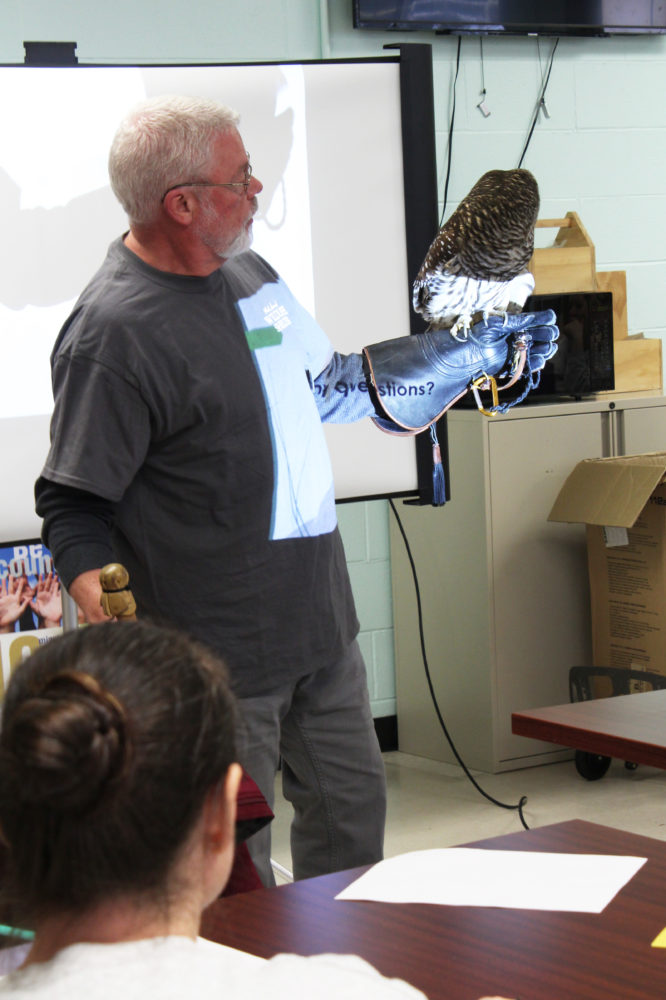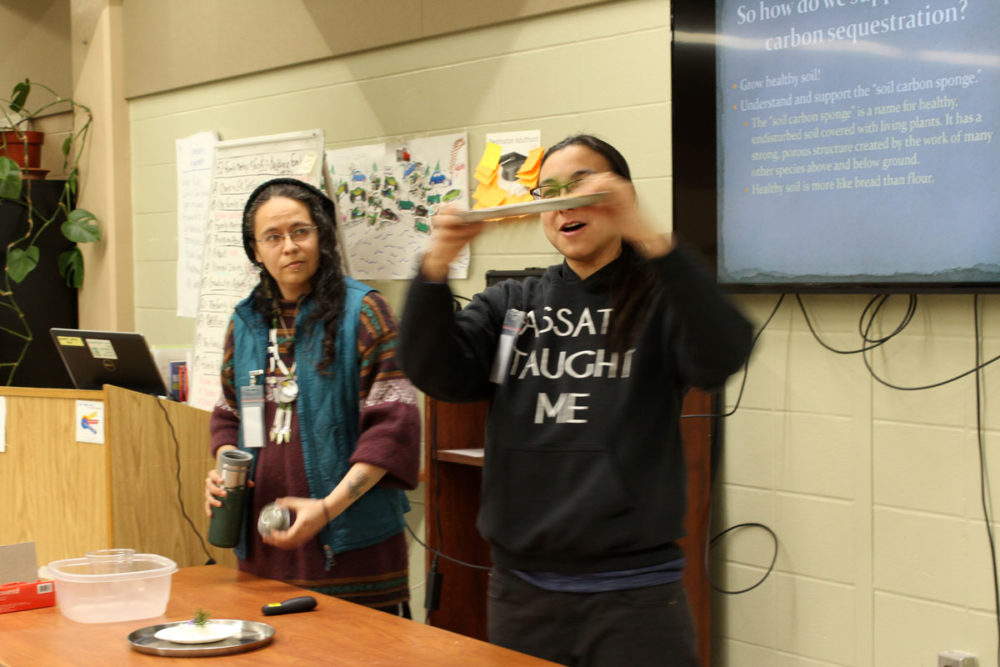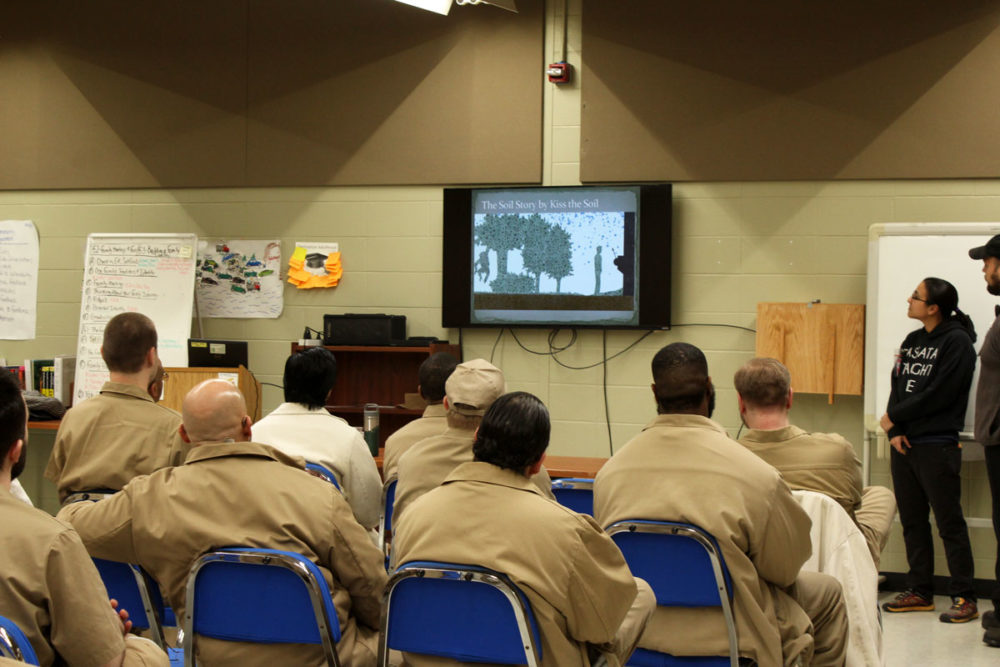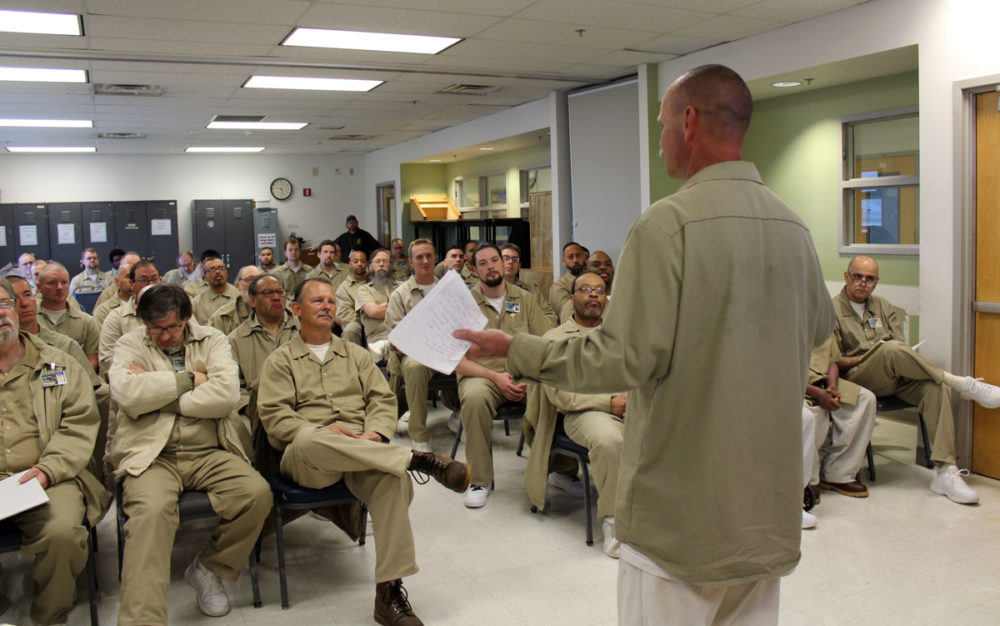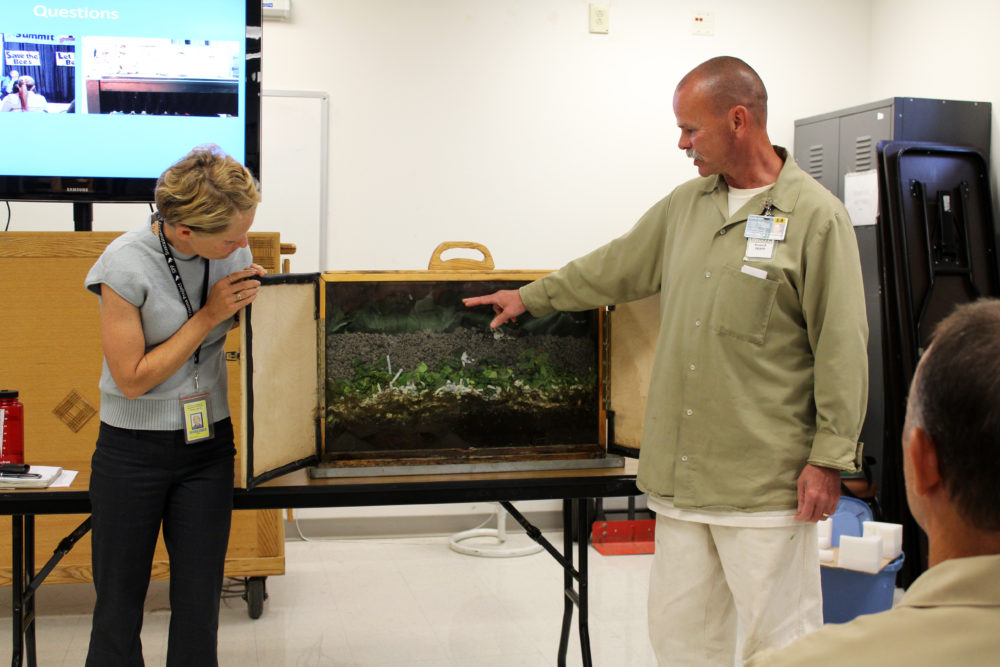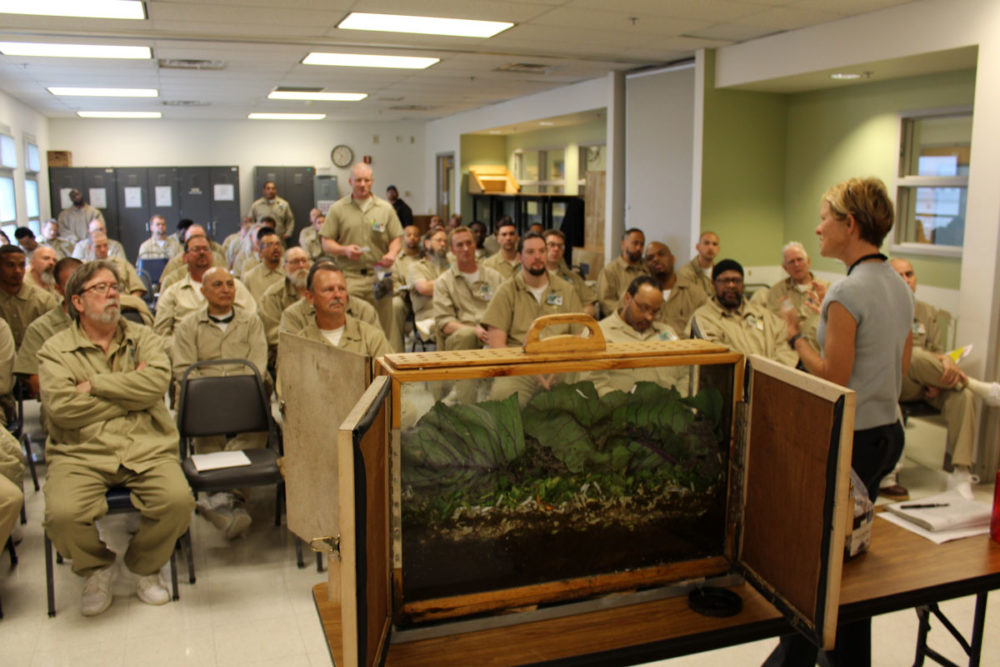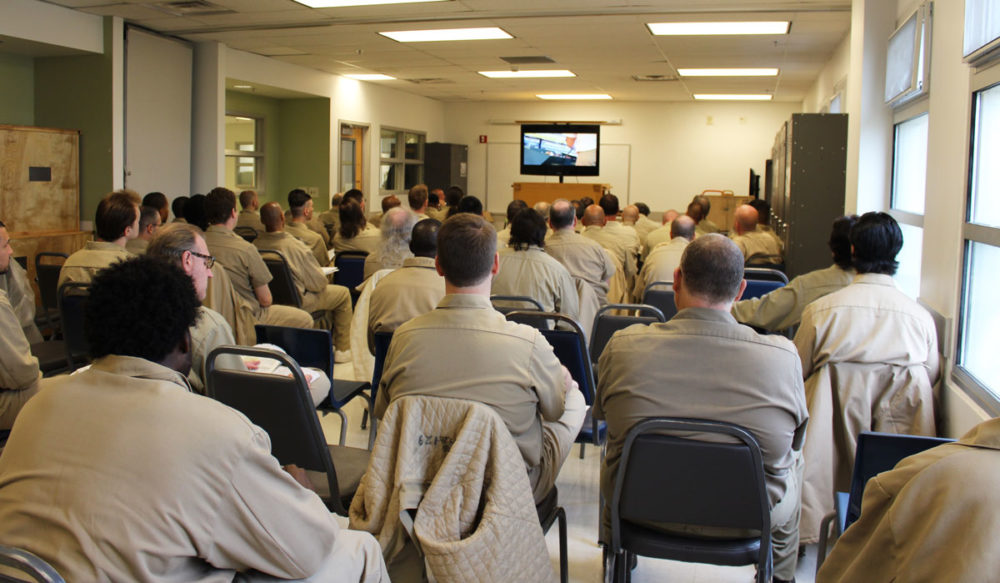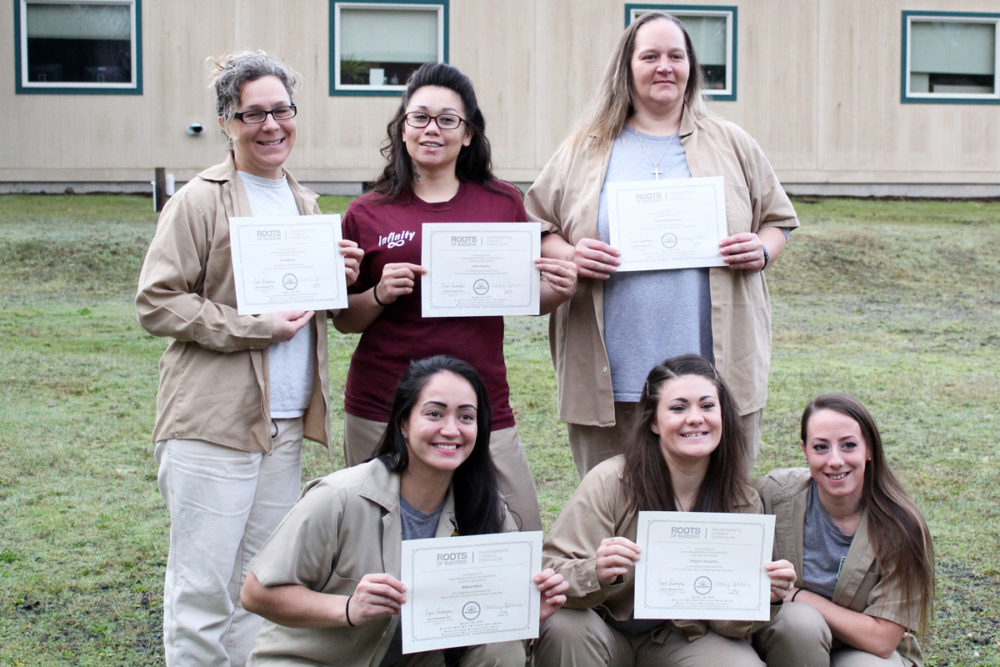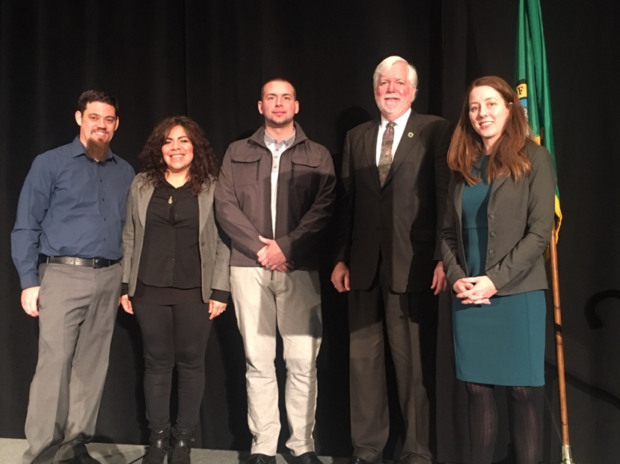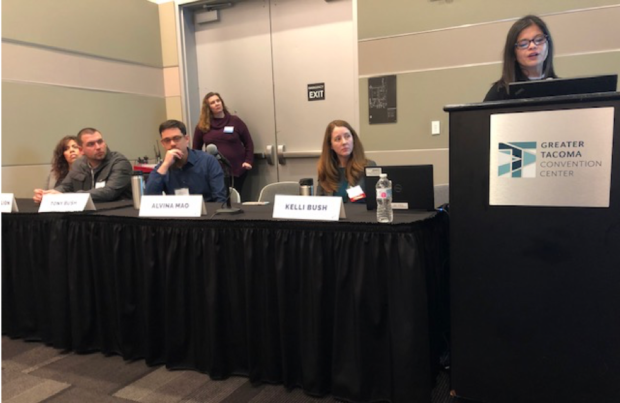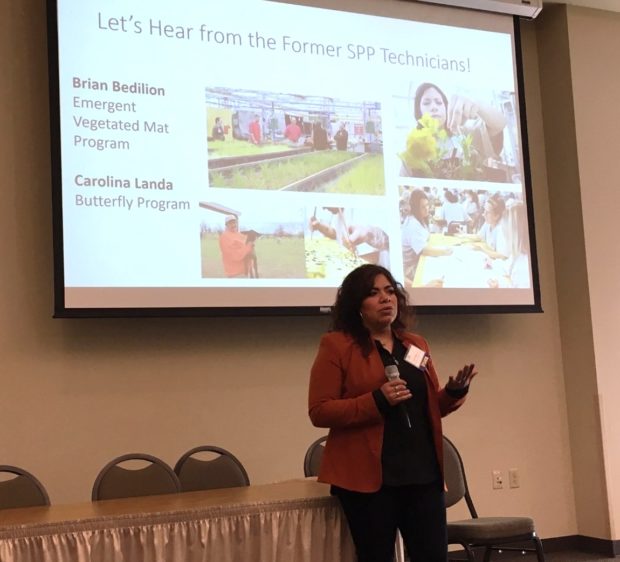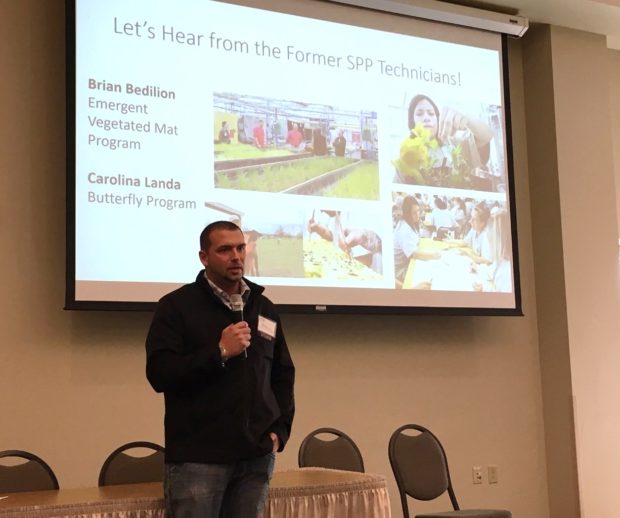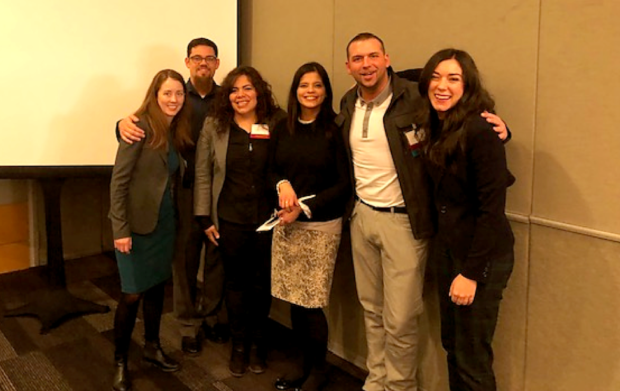Text and photos by Erica Benoit, SPP Workshop Series Coordinator
Unfortunately, the Environmental Workshop Series may be facing the greatest impact of all SPP programs due to COVID-19. While we are proud of the programs’ large crowds, we know that the coronavirus thrives in such environments. In an effort to protect our incarcerated and staff partners, the workshop series has been temporarily paused at all facilities. It is our goal to resume the regular workshop schedule and reschedule canceled workshops once it is safe to do so again.

As a part of our efforts to adapt and evolve, we are also test-driving a remote workshop learning plan at Stafford Creek Corrections Center so workshop students can continue to earn credit towards their workshop certificates. Beginning this month (May 2020), in lieu of in-person workshops, students will be able to watch videos on a specific environmental topic through an in-facility TV channel. In addition to viewing the selected videos, students will be required to reflect on what they learned in writing. Submitting this assignment will earn the equivalent of 1 regular workshop credit. Depending on the success of the remote learning plan, it may be expanded to additional facilities.
Still, we miss the workshops and the in-person interaction and knowledge gained from them. So, please enjoy these images of the last few in-person workshops we had in late February and early May.
Raptors of the Pacific Northwest, Workshop on March 6 at Mission Creek Corrections Center for Women (MCCCW)
Fawn Harris and Michael William Etgen are from West Sound Wildlife Shelter. Fawn used to coordinate one of SPP’s conservation nurseries and she facilitates wonderful workshops! (A photo of her and Princess Remington is at the top of this story.)
An Introduction to Permaculture, Workshop on February 20 at Stafford Creek Corrections Center (SCCC)
Sheilia Canada led a workshop on a sustainable living system that supplies all the needs of humanity while it benefits all creatures on Earth.


Climate Crisis Solutions: Healthy Soils & Food Forests, Workshop on February 26 at Washington Corrections Center (WCC)
Julianne Gale, Zephyr Elise, and James Landreth from Mason County Climate Justice led a session on healthy soils and food forests as a potential solution to the climate crisis.

